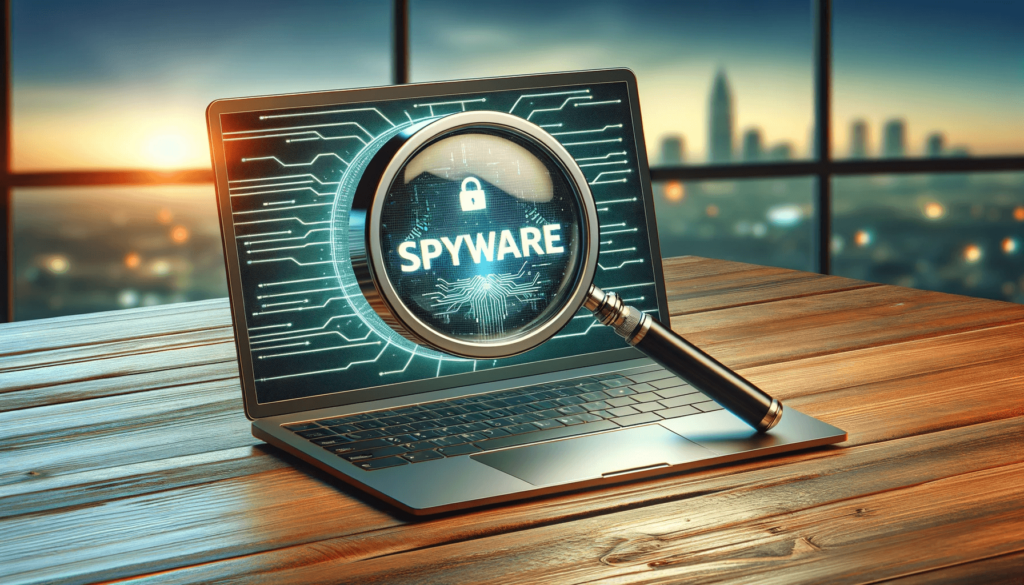In today’s fast-paced society, the prevalence of multitasking has become a common practice among many individuals. Tasks such as checking emails, scrolling through social media feeds, and making online purchases are frequently juggled simultaneously. However, this constant transition between activities may inadvertently expose us to spyware, a form of malicious software capable of circumventing our security protocols. The purpose of this article is to shed light on the existence of this covert digital threat that poses risks to our online security and privacy in an interconnected world where multitasking has become a norm. As we navigate through various online activities simultaneously, it is essential to be aware of the potential dangers posed by spyware and take necessary precautions to safeguard our personal information and digital devices. By understanding the risks associated with multitasking and spyware, we can better protect ourselves in an increasingly interconnected and technology-driven environment.
Visualize spyware as a surreptitious intruder that infiltrates your devices without your detection, covertly monitoring your online behaviors. This grim reality underscores the critical importance of maintaining vigilance in our interconnected digital landscape, especially for those who regularly engage with screens and keyboards. As we navigate through the intricacies of modern technology, it is essential to be aware of the potential risks posed by spyware and take proactive measures to safeguardBut why should you care? Because spyware can affect anyone who uses a digital device. Whether you’re checking emails, browsing your favorite websites, or downloading apps, spyware could be watching. This isn’t just a tech issue; it’s about your privacy, your security, and your peace of mind in this connected world. So, let’s dive in and uncover the secrets of spyware.
By the end of this article, you’ll be more aware, better informed, and ready to protect yourself against these digital spies.
What is Spyware?
Spyware is a type of malicious software designed to enter your computer device, gather your personal information, and transmit it to third parties without your consent. It’s a hidden digital menace that operates stealthily in the background, often without the user’s knowledge.
Types of Spyware
- Adware: Bombards users with unsolicited advertisements.
- Trojans: Masquerades as legitimate software to trick users into downloading.
- Tracking Cookies: Monitors and records online activities.
- System Monitors: Captures everything you do on your computer, from keystrokes to screen captures.
- Keyloggers: Specifically records keystrokes, capturing sensitive data like passwords.
How Does Spyware Infiltrate Devices?
Spyware infiltrates devices in a surprisingly stealthy manner, exploiting everyday digital activities. It doesn’t always require sophisticated hacking skills; instead, it often leverages simple tricks and user oversights. Understanding the common avenues through which spyware enters our devices is key to preventing its silent invasion. Here are some of the typical methods used:
- Phishing Emails: Crafty emails that trick you into clicking on malicious links.
- Bundled Software: Spyware hidden within legitimate software packages.
- Infected Websites: Visiting compromised websites that automatically download spyware.
- Social Engineering Attacks: Manipulating users into compromising their own security.
The Impact on Privacy and Security
The presence of spyware in our personal devices is not just a minor nuisance; it carries significant and far-reaching consequences. By covertly breaching our digital privacy, spyware can lead to a spectrum of risks that affect not only our personal information but also our overall digital well-being. Understanding these impacts is crucial in recognizing the seriousness of spyware threats.
Here are some of the key risks associated with spyware:
- Privacy Violation: Unauthorized access to personal and sensitive information.
- Identity Theft: Using stolen data for fraudulent activities.
- Financial Loss: Access to financial information leading to unauthorized transactions.
- Decreased Performance: Spyware can slow down devices and lead to system instability.
Detecting Spyware: Signs & Symptoms

Identifying spyware can be a challenge due to its stealthy nature. However, there are certain signs that might indicate its presence. These include unusual device behavior, such as sluggish performance, frequent crashes, or unexpected ads. An unexplained surge in data usage can suggest background activities by spyware. Here’s how you can speed up your computer if you find no presence of spyware.
Additionally, receiving strange messages or notifications that you don’t recognize, and rapid battery depletion as spyware operates continuously in the background, are also telltale signs.
Protecting Against Spyware: Prevention & Solutions
Taking proactive measures is crucial in safeguarding against spyware. This includes keeping your operating system and applications regularly updated to patch vulnerabilities. Utilizing reliable antivirus software that offers real-time protection is essential. Awareness and caution in your digital interactions, such as being cautious about the links you click and the software you download, are vital. Secure browsing practices, including the use of VPNs and avoiding suspicious websites, and email vigilance, like not opening attachments or clicking on links from unknown sources, are key strategies.
When it comes to safeguarding your digital life against spyware, using specialized anti-spyware tools is crucial. Products like SpyZooka, known for their robust detection capabilities, play a pivotal role in identifying and eliminating spyware threats. These tools are meticulously updated to counteract the latest versions of spyware, ensuring an up-to-date defense system for your devices. By incorporating such advanced and regularly updated solutions, users can significantly enhance their digital security and peace of mind
The Future of Spyware and Digital Security
As technology continues to evolve, so do the methods employed by cybercriminals. Looking ahead, the future of digital security is expected to include advanced detection algorithms that leverage AI and machine learning to predict and identify spyware. There will be an increased focus on user awareness, with enhanced public knowledge and best practices in digital hygiene becoming more prevalent. Additionally, we can expect stronger regulations, with stricter laws and regulations being implemented to better protect user data and privacy.
Conclusion: Staying One Step Ahead
While spyware presents a significant threat in our digital world, understanding its workings, staying alert for signs of infiltration, and employing robust protective measures can greatly mitigate its risks. By staying informed and vigilant, we can protect ourselves from the hidden dangers of spyware and maintain our digital security.
